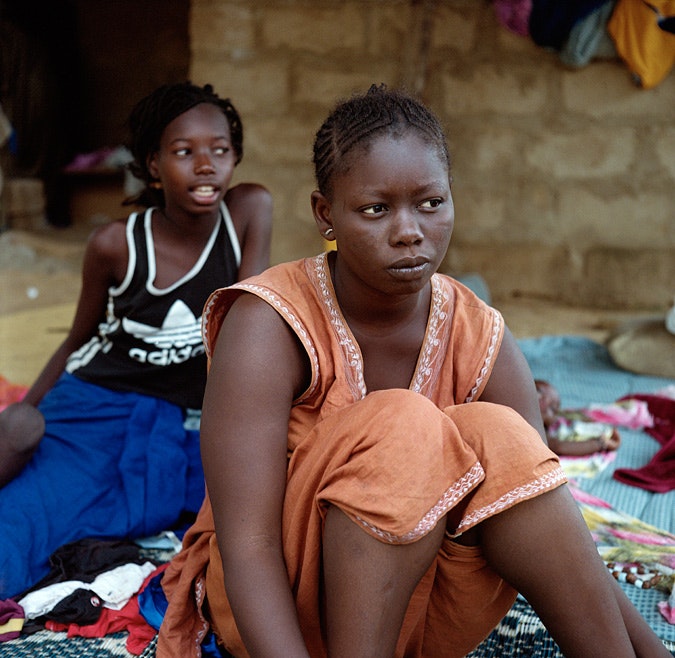Fear and Statelessness in Mauritania
By Sebastian Kohn

Over the past two weeks protests have broken out in Mauritania over an ongoing government census—leaving at least a dozen people reported wounded and one person dead.
News agency reports say the protests have involved a movement called “Don’t Touch My Nationality,” pointing to the suspicions that apparently lie behind the unrest. With a history of racism, slavery and discrimination at the hands of the country's ethnically Arab majority, the country's black Mauritanian minority is wary that any census could turn into another bid to take away their citizenship rights.
In April 1989, the Arab-dominated government in Mauritania began denationalizing and expelling large numbers of black Mauritanians to neighboring Senegal and Mali. By summer 1990, some 75,000 people – a conservative estimate – had been forced into exile. The Ould Taya government which was responsible for the expulsions remained in power until 2005, when a coup led to a change in government. Although many expellees have made it back to Mauritania on their own since the mid-1990s, it was only after the fall of the Ould Taya government that a Tri-Partite Agreement governing formal returns of expellees was signed between Mauritania, Senegal, and UNHCR in 2007.
Formal repatriations began in January 2008. But after yet another coup in August 2008, the process has been all but smooth, and for most of 2010 it stalled altogether.
Under the Tri-Partite Agreement, expellees are meant to have their Mauritanian nationality restored. Upon their return, expellees receive a receipt/document from UNHCR which in theory entitles them to obtain a national ID card. But until they receive the ID card itself, their nationality status is uncertain at best. Without an ID card, the Mauritanian government does not consider you as a national, and unless you have nationality somewhere else, you are stateless. When I visited Mauritania in September 2010, many returnees told me that only about half of all those entitled to ID cards had actually received them. UNHCR data confirms this.
And then came December 2010, when the Mauritanian government decided to stop issuing new ID cards, citing the need to carry out a census to ensure that no foreigners were obtaining Mauritanian documents.
This left thousands of returnees in limbo. The census began in May 2011, and sparked understandable discontent among black Mauritanians. While the Conseil des ministres decided in June to extend the validity of ID cards expiring in 2010 and 2011, those who never had an ID card – including many of the returnees – will not receive one until the census is over. Currently it is scheduled to last for 18 months. Without an ID card many are unable to travel to the nearest town, or to carry out any official transactions.
There are many problems and concerns about the census. Clearly, a major fear is that it might be used to deprive people of their nationality. In addition, the population census is carried out through fixed registration centers, rather than mobile units as is common practice. This means that people will need to travel to these census centers in order to register (in fact, this appears to be more of a civil registration campaign than a “census”), and there is a very legitimate fear that people in rural areas are going to be unable or unwilling to cover the cost of travelling to these centers.
Whether or not the census is designed to deprive people of their Mauritanian nationality, this is an entirely possible outcome of the “census”. According to reports in the media, some black Mauritanians, when registering at the census centers, have been questioned about their knowledge about Mauritania, suggesting registration officers doubt the legitimacy of their nationality claims. Allegedly, black Mauritanians are also significantly underrepresented on the community panels that oversee the “census”. Either way, the timing of the “census” is unfortunate given that the returns have not yet been completed.
Given that the exercise has already begun, the best the government can do is to provide those who are undocumented with temporary ID cards and to ensure – not just in words but also in action – that the “census” does not become yet another racist debacle resulting in statelessness and disenfranchisement.
Sebastian Kohn is project director for sexual health and rights at the Open Society Public Health Program.